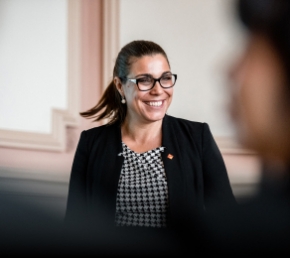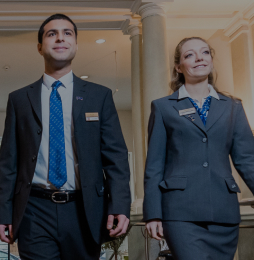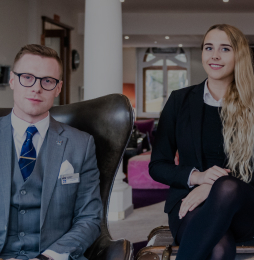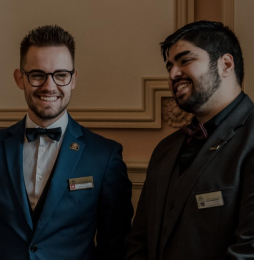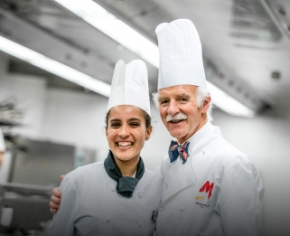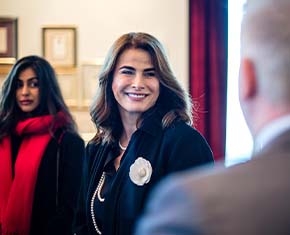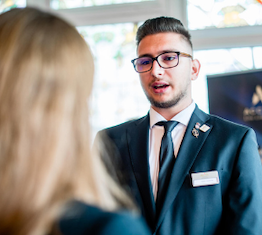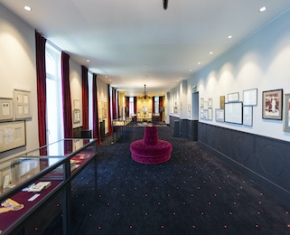- About
- Schools
- Lifelong Education
- News & Events
- Community
The value of soft skills in business
#Career advice
The value of soft skills in business
The secret ingredient Swiss Education Group schools offer that propels graduates further than the average business student.
What are soft skills?
There’s a lot of talk about soft skills in the workplace and how important they are in one’s career. But not everyone really understands what they are or why they are so important. People who possess soft skills are usually described as thoughtful, attentive, warm, friendly, inclusive, good listeners, or good communicators.
Some people undervalue the importance of soft skills, categorizing them as personality traits rather than professional assets. And, since they are not easily certifiable, they can go underappreciated by employees and employers alike. Only the experienced see the value in a resumé full of adjectives.
Given that soft skills are often miscategorized as personality traits and not actual skills, many people don’t realize that it’s possible to build these intangible skills to improve one’s own professional performance.
So, let’s look at what these personality traits bring to the workplace. People who are thoughtful, attentive, and friendly are usually great at customer service, networking, and building professional relations. People who listen and communicate well are often the same people who have strong negotiation skills and an ability for conflict resolution. When we redefine these “personality traits,” it becomes clear that they are indeed skills. And like any skill, they can be honed, and if not perfected, they can at least be improved upon.
What is hospitality and why is it important?
If we take a closer look at “soft skills” and what they embody, we discover that they are the core elements of what is known as “hospitality.” And hospitality is the cornerstone of all Swiss Education Group (SEG) schools. But what is hospitality, and why does it make a difference in a business education?
Hospitality is a multi-dimensional concept that goes beyond specific industries and cultures. It fosters a sense of warmth, kindness, and real connection. The core of hospitality lies in making people feel truly welcomed and valued in any environment, from a hotel front desk to an executive board meeting.
The core attributes of hospitality are warmth and friendliness, personalization, thoughtfulness, respect, and empathy, to name a few. Combining these threads of hospitality creates the emotional ties that promote loyalty, be it socially with friends or professionally with clients and colleagues.
They make an individual feel special, unique, and valued. When people feel this way, they are, as a result, more inclined to trust and open communication. When one understands the psychological effect these attributes can have, one can then put intention behind them and transform any situation into one of inclusion, making all participants comfortable and, as a result, agreeable: the best mindset for conducting business.
Hospitality also results in a natural reciprocity. When we show genuine hospitality to others, we create an understanding of mutual respect. This base of respect has the potential to transform initial acquaintances into profound relationships, both personally and professionally.
These relationships create loyalty. In business, customer loyalty is paramount. A client who genuinely feels valued will come back and is willing to pay more for a good experience. Feeling seen, heard, appreciated, and important has no price tag.
Hospitality in business also improves reputation. Satisfied customers and word of mouth are still the most powerful marketing tools, and in the age of information, an honest good review or a scathing critique can have a significant impact on a business’s reputation. Business reputation is not limited to sales and customer relations, it also affects business partnerships and B2B corporations.
When we learn the skills behind hospitality, we also learn that it can be challenging, which sheds light on the inaccuracy of any assumption that soft skills are personality traits. Hospitality can require significant effort. Difficult situations and people may test our patience. Honoring the individual while managing demanding preferences, expectations, and schedule conflicts can tax us physically and mentally. How we handle these situations and stress while remaining patient are also skills that can and need to be developed.
Learning to improve your soft skills and develop your personal hospitality is a question of intention. Like any skill, it takes active practice to improve and make the gestures of hospitality become second nature – almost like a personality trait.
An open, approachable composure can be learned.
Can I develop soft skills and improve my hospitality?
Having established that soft skills are not personality traits but are indeed the pillar stones of hospitality, how does one cultivate these skills? The following active intentions are the place to start:
- Practice active listening; this can be the hardest task, but all the following actions and behaviors are dependent upon your listening comprehension.
- Show empathy; always keep in mind how you might feel in the other person’s place.
- Be patient; if you master empathy, patience comes more easily.
- Prioritize comfort; small gestures can go a long way in communicating your care.
- Encourage inclusivity; everyone likes to be included.
- Be genuine; people are highly sensitive to inauthenticity. If any of the above actions are perceived as inauthentic, it can work against you.
Improving hospitality in business as an employee or business owner doesn’t necessarily require large-scale changes or investment. Small gestures, thoughtful touches, and genuine effort can go a long way in making guests feel valued. Start with the list above, then translate them to the workplace in simple ways, such as:
- Prioritize guest satisfaction through attentiveness, responsiveness, and respect.
- Create a culture of hospitality within the business. The environment of hospitality starts at the top by treating employees and colleagues as you want them to treat clients. Taking care of your employees is indirectly taking care of your clients.
- Great leaders make coffee; whether the management structure is flat or not, engaging in team-centric tasks promotes inclusivity.
- Listen to customer feedback and make changes accordingly.
- Pay attention to small details like creating an inviting environment through lighting, decor, cleanliness, and simple services such as a complimentary beverage corner.
- Offer personalized recommendations or suggestions based on guest preferences.
- Show appreciation for loyal customers through gifts, perks, or rewards programs.
The secret ingredient of an SEG education
With these new definitions and examples of soft skills and hospitality, one can understand why a graduate who possesses these customer-centric skills would be more employable than one who does not.
What specifically do SEG graduates do differently than other graduates? Their education has an emphasis on hospitality in business and their hands-on work experience via multiple internships ensures that they fully understand the impact their training has on business.
- SEG graduates understand that their work has a direct effect on customer experience and revenue. Happy customers equate to more sales and repeat clients. Having a clear line of sight to the impact of their work on the overall business builds ownership and promotes engagement.
- Graduates who are not working directly with clients will still transfer these skills to the work environment. An employee trained in soft skills will have a profound effect on teamwork and collaboration with colleagues. As a result, they are perfectly poised to take on management positions.
- They have learned how to deal with people – not merely skilled, they have been trained in patience and empathy and have learned how to interact with people. Trained to anticipate customer needs, they can avoid potential issues before they arise.
- Hospitality specialists are highly valuable in building business due to their ingrained ethos of meeting customer needs. Addressing immediate short-term customer needs builds brand loyalty, which promotes repeat clients, leading to longer-term revenue for the business. Providing a discount or a perk to compensate for small problems may not have a significant impact on a business, but the gesture has a ripple effect. Appreciated by the client, it is not forgotten and often results in positive reviews and word of mouth. This builds true customer loyalty.
Soft skills and hospitality are clearly important skills that will improve relations both personally and professionally. If these skills are developed and used with intention, they canwill help you propel ayour career into higher levels of responsibility and management; they canyou will be able to improve customer relations and build brand loyalty, resulting in higher revenue. Therefore, developing these skills in conjunction with studies, such as attending an SEG school, working on these skills post-graduation will always be a benefit you will take through life, personally and professionally.
Interested in earning a degree with a hospitality difference?
#Career advice

